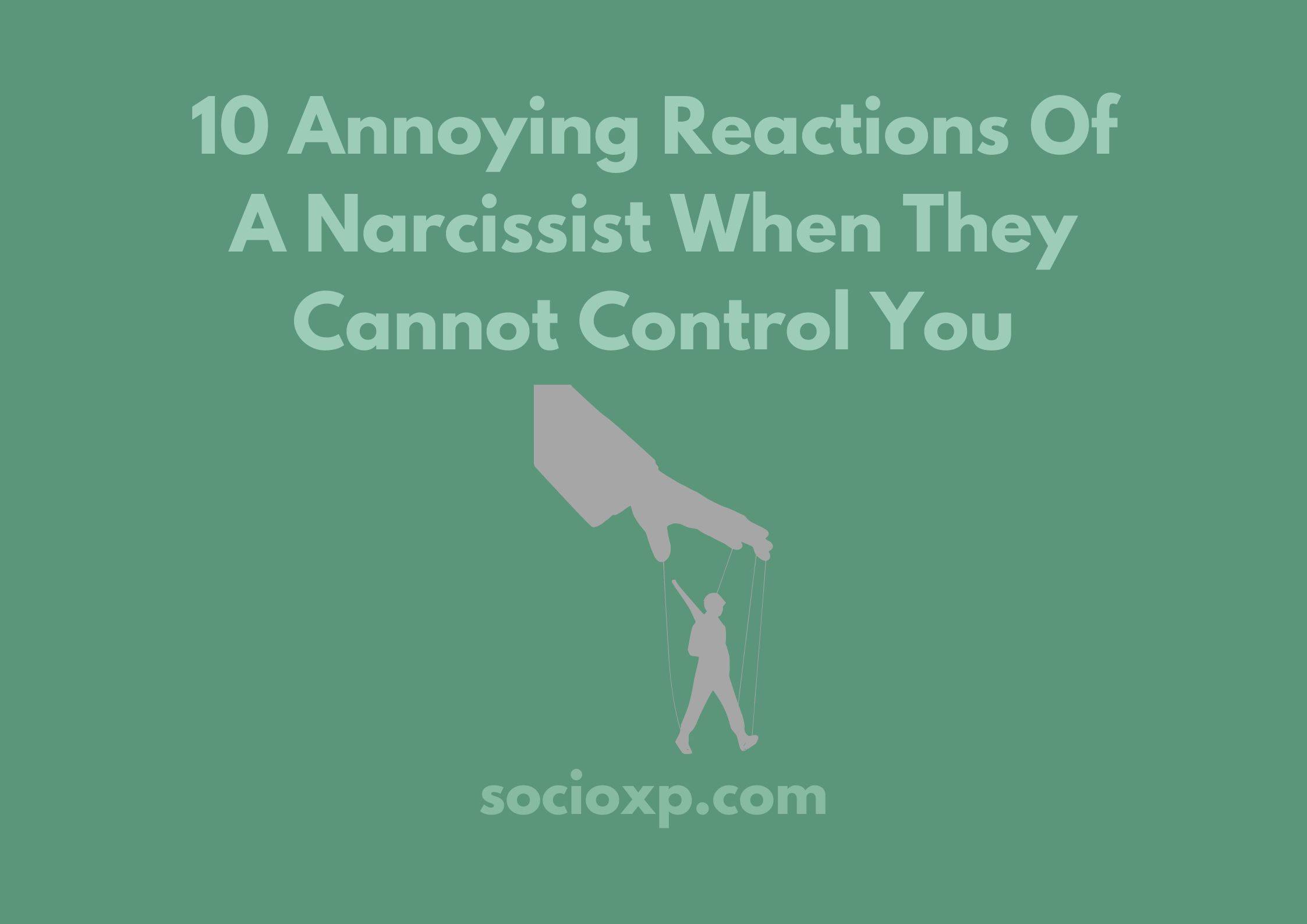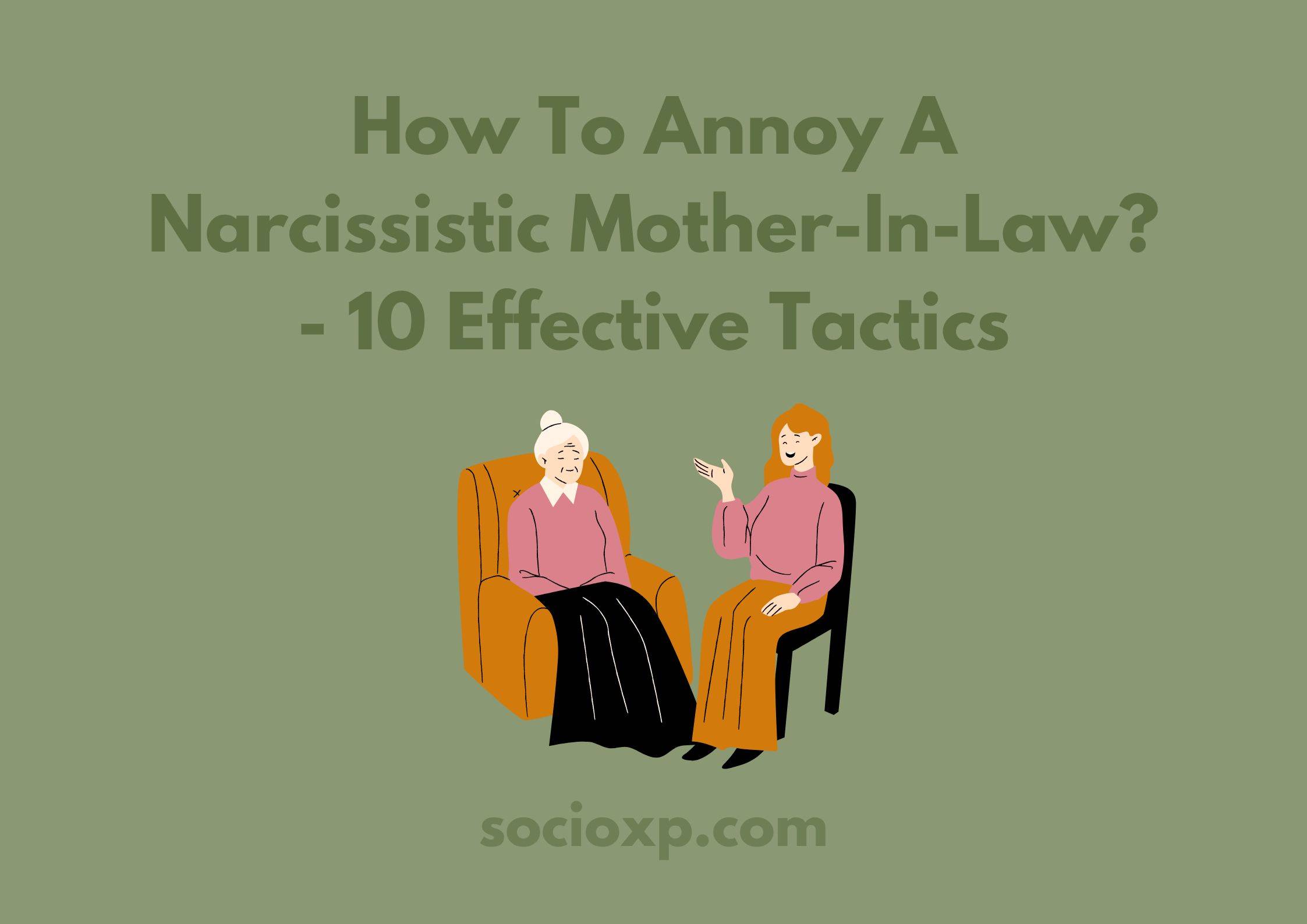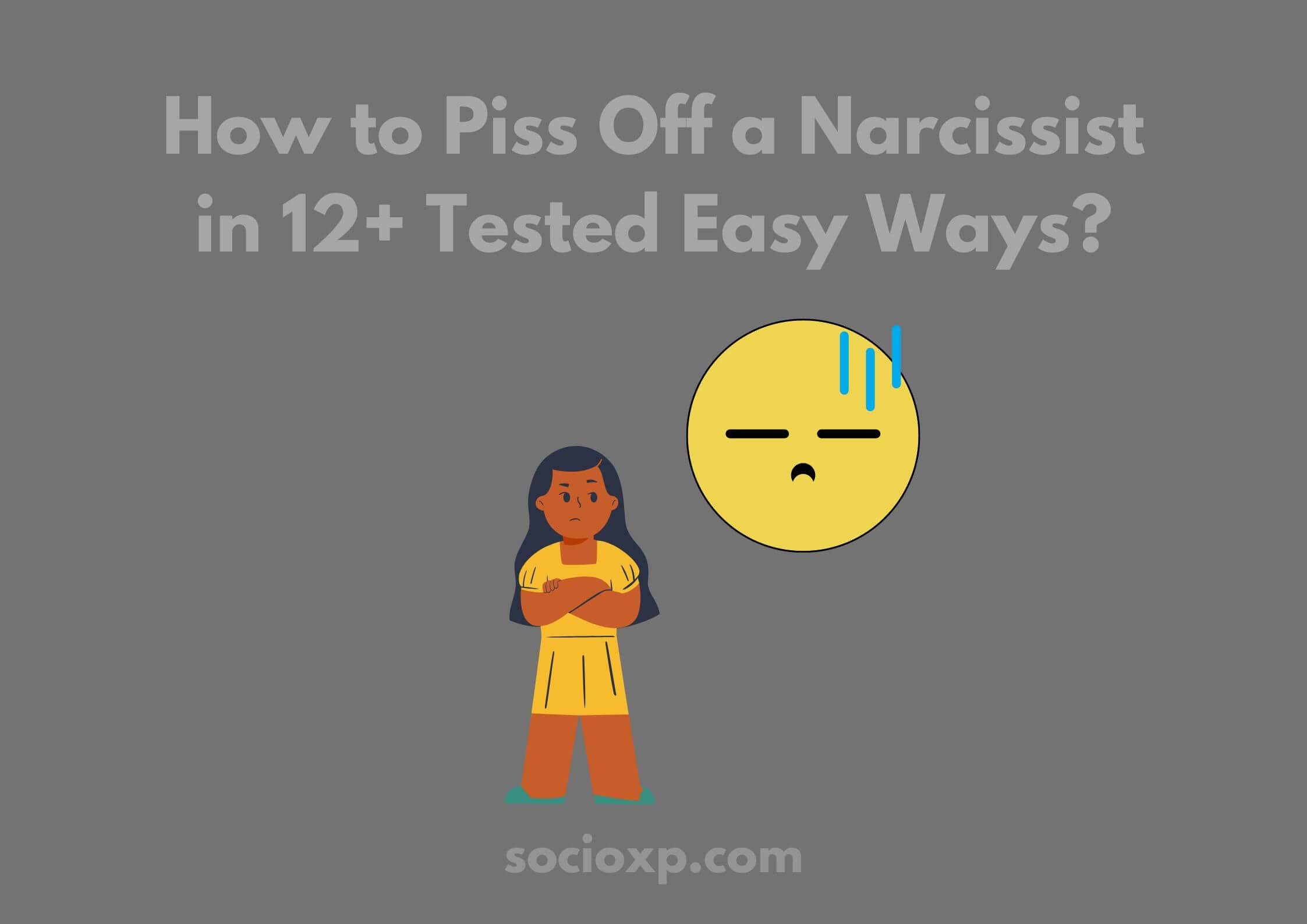How To Get Over A Narcissist? – 10 Essential Tips
How to get over a Narcissist? If you are rethinking the same thing, but are unable to move past the experience of a toxic narcissist in your life, then here are a few tips from experts to heal yourself from the abuse.
Narcissists are often characterized by their boosted sense of self-importance, self-pride, and self-needs. With a narcissist, everything is just about them. Narcissists thrive upon the attention, adoration, and validation that they receive from others, and what makes them distinguished from others is the way they think and the way they behave, which is totally selfish and mean.

Narcissists have a tendency to use people for their needs and desires. They just seek attention and control. They believe the world revolves around them and they are entitled to have whatever they desire.
Hypocrisy is their go-to trait. Selfishness is in their true nature, and they would do anything to seek benefit from you. They ought to keep in touch with their exes and not hesitate to lure them into new relationships.
When you end a relationship with a narcissist, it is just not over there. You would finally be taking a breath of relief, as you are out of the narcissist’s toxic and abusive relationship cycle, but get ready to be burdened again by the narcissist’s manipulation and persuasion as the relationship is just not over yet.
Narcissists use this persuasive tactic called hoovering, where they lure their victims. The one and ultimate goal of narcissistic Hoover is to tempt or persuade their ex-romantic partners, back into the relationship by manipulating them, abusing them emotionally, and guilt-tripping them about ending the relationship.
Thus it becomes difficult to get over a narcissist, but it is not impossible. Here are a few ways that may help you to get over your narcissistic partner,
How To Get Over A Narcissist?
Getting over a narcissist requires healing, patience, and self-compassion. If you have just separated your ways from a narcissist and you want to make sure that you are doing better or are in the process of getting over them, then here are a few steps that may make sure you are getting over them or are at least in action to heal yourself from the narcissistic abuse.
Here are some ways,
Find ways to cope with anxiety
After prolonged exposure to abuse, toxicity manipulation, and control, when you have found yourself out of that toxic atmosphere, sometimes your mind may be even more stressed as nobody is controlling you anymore. You might feel like something is missing as you are now the master of your wishes.
The feeling of emptiness might not leave you for a while and this may give birth to new anxieties which may not be that stressful but the newfound freedom, lack of support, financial struggle, a surge of emotions, worries regarding finding a place and all of that might be giving you separation anxiety. But do not worry my friend and celebrate your newly found freedom as finally you are free from a controlled life.
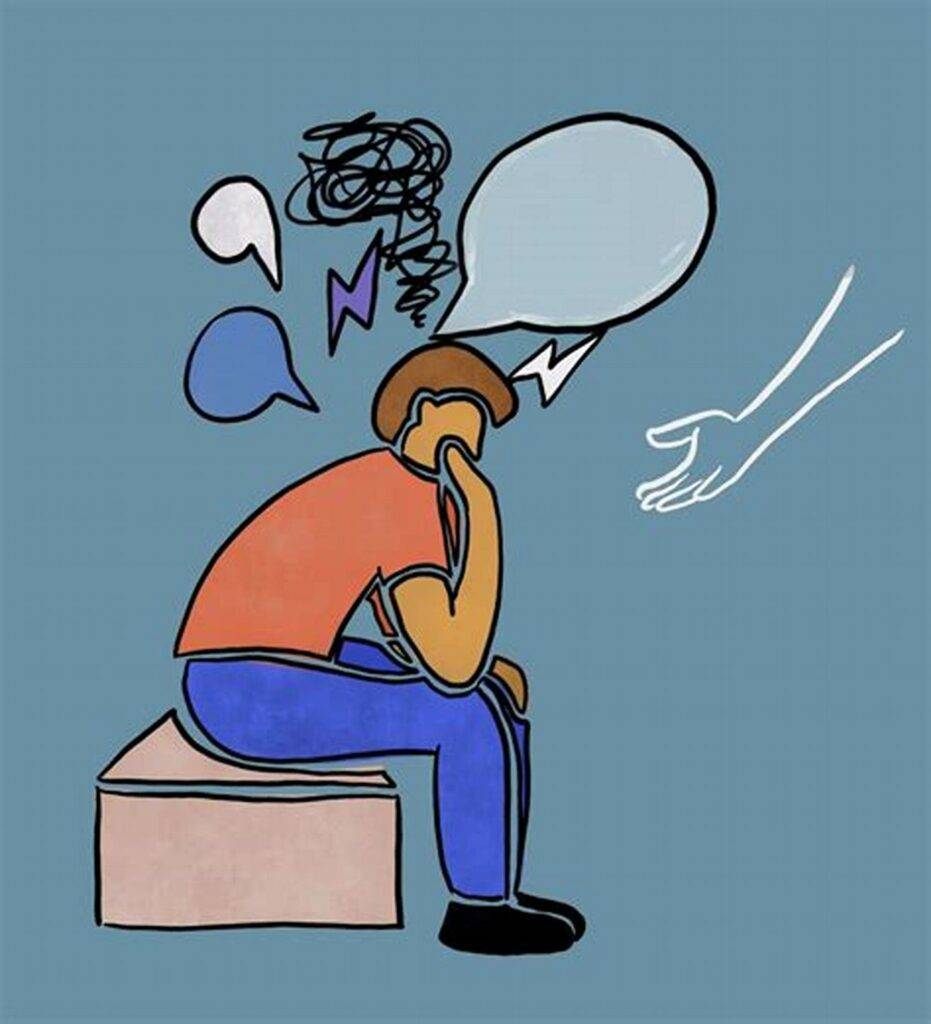
To cope with your separation anxiety, and bring composure to your life, you may engage in activities like yoga, swimming, joining an art class, listening to music or seeking music therapy, adopting a pet, going hiking, and so on.
Do not blame everything on yourself
A narcissist blames everything on their partners for anything that goes wrong with them. Narcissists are experts at blame-shifting or gaslighting others for their abusive behavior.
Constantly being with a such person can affect you and you may always blame yourself for everything whenever something goes wrong around you be it with a friend, a family member, or a colleague. You may always feel responsible for what is happening around you even though those things have nothing to do with you.
You must realize here that it is not your fault and it is not your responsibility to fix every problem around you. So if a situation does not involve you, try not to be obligated and involved with it.
Stop Obsessing
Having a successful relationship with a narcissist is nearly impossible, and you may constantly be adjusting and making yourself more suitable to them. They have this tendency to devalue others and thus may be consistent in your efforts to keep them pleased.
Despite your sweet, exceptionally understanding, and bearing nature you might face their rage. You may also be receiving curve balls from the despite being this nearly perfect partner. Thus you may form a habit of being analytical, observing, and making unusual efforts to keep the relationship working.
You may be obsessed with caring for others all the time and ignoring yourself and your needs just because you had a narcissistic partner and now all you do is how your actions may concern them.
Stop doing this and you may find ways to heal yourself from the narcissistic abuse that may still be stopping the healing processes.
Focus on Self Care and Self Love
With the narcissist by your side, you might have neglected your physical, mental, and psychological health due to their constant manipulation and interference. Thus your mental, physical, and emotional health needs to be protected at all costs. This is one more step towards healing from the narcissistic abuse.
To protect your emotional health you must develop self-worth, self-respect, and self-esteem that may allow you to feel all the emotions that you might be struggling with guilt, temper, and much more. When a narcissist is involved in your life, they can totally invade your self-respect, self-esteem, and your self-pride.
You start feeling worthless as they make you believe so. They shatter your self-image and make you completely dependent on them to seek validation before making any decisions. They always prove that they are superior to you and thus sabotage your self-esteem.

Self-esteem can be developed by working on yourself. Self-care makes you strong-willed and thus helps you in developing your self-esteem and self-pride. Working on your self-confidence, your goals, and mental peace can be your initial steps toward self-care.
This is how you protect your mental health. But mental health only can be protected when your physical health is protected.
Protect your physical health by opting for exercising, gymming, doing yoga, and all such options. To protect your mental health focus and prioritize your own needs love others, seek help, and involve yourself with other people to save your self-worth.
For protecting and working on mental or psychological health, one must consult a mental health expert or read self-help books. Seeking help from family may also help here. Thus self-care is a crucial stage of healing. Healing is important to get over the narcissist in your life.
Go No Contact
Going no contact refers to completely going off contact with someone or an off-reach approach with them. It can be done by deleting or blocking them and cutting off all sorts of communication. You may no longer interact with that person in any form. No contact is generally applied with someone you have had close relations with and need to part ways with them for good.
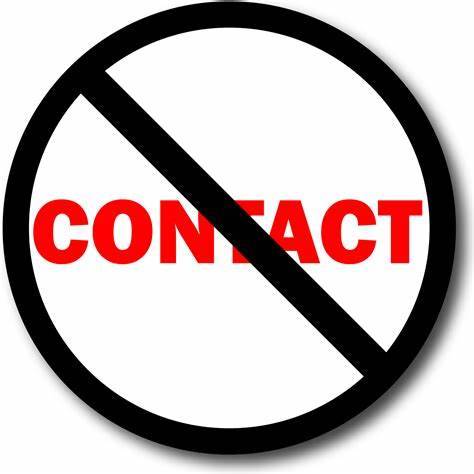
This decision of going no contact with someone is often made to discard them completely from your life and maintain your boundaries, protect your emotional and mental well-being along with maintaining your physical health, disconnect from toxic relationships, or find your individuality in an abusive relationship.
Going off-reach with someone is often done by deleting or blocking them on social media, blocking their phone number, not visiting places that you expect them to be, or even going to extreme limits like switching your grocery stores, taking different metros, or avoiding any activity that you think you might bump into them.
This is one of the best ways to get over a narcissist.
Try to reconnect with old Hobbies or Passions
It is common to lose your interests and hobbies while being with a narcissist. Narcissists have a tendency to criticize what their partners like or do. They believe whatever they do is correct and everyone must do so. Thus being with a narcissist would be following their hobbies and promoting their interests.
But once you move on you may start rebuilding your old habits, old hobbies, and interests. This way you may reminiscence what you used to love or like prior to engaging with a narcissist.
Surround yourself with the right support
When you are coming out of a Narcissistic relationship, seeking help from others can help you a lot. Being alone in such a phase is risky and not good for your mental health, as you would be healing from all the trauma that the narcissist had put you through.
So do not hesitate to reach out to friends and family for emotional support and also join some prayer groups, visit any worship place, if you are a believer, or join some communities or therapy groups that help in healing and dealing with trauma.
Allow yourself to Grieve
The most important step toward healing is to allow yourself to feel all the grief and give ample time to yourself to heal. Time is the only medicine that you need for healing.

It is okay if your partner could not turn out as you expected them to, or the relationship you rooted for could not turn out to be successful or you had to face a loss that changed your life.
Remind yourself of the reasons for ending the relationship
Once you move out of a toxic relationship, the narcissists may not allow you to move on as they may hoover around you for a long time.
Thus when this happens you should remind yourself of the reasons why you left the narcissist in the first place. Write down or remind yourself of their negative traits, the traits you disliked, and the not-so-bright future you might have had with them.
These points can be supportive when you are emotionally weak or change your thoughts about the narcissist.
Do not look back
Once you are out of the toxic relationship, there is no going back to the abusive relationship. Getting away from a narcissist is as is a tough task so once you have moved on there is no need to look back even if you feel you might not find someone else.
Remember that you might definitely find someone better or at least someone who is not as manipulative as the narcissist and you may not have to lose yourself to be with them.
Why is healing from Narcissistic Abuse so difficult?
The narcissistic cycle of Abuse leaves the person experiencing emptiness, deep scars, and a long-lost connection with the world. Narcissists have a very negative impact on their partners and thus their partners find it hard to recognize genuine feelings once they are out of the toxic narcissistic cycle of abuse.
Yes! Breaking up the toxic cycle of abuse by a narcissist can be a cynical and delusional process, but once you gather the strength it is not impossible.
Narcissistic relationships are unique and gripping which makes the freeing process even more difficult. There are a few prominent features that make the leaving process most difficult,
Narcisists have a strong hold over their partners making it a trauma bond. Trauma bonds are quite difficult to leave due to the dependency that they have created for you.
The Guilty feeling brings in all the shame and guilt of leaving the narcissist. Narcissists may not allow you to forget the guilt and thus this guilt drives you back to the toxic relationship.
The absence of help and support may make the leaving process even more strenuous. Thus seek help from family, friends, or therapists.
How long does it take to get over a Narcissist?
There is no specific time regarding the process of getting over someone. The longer you have been in a relationship the longer it might take to heal. Also the more the abusive relationship the longer it may take to heal. There is no such specific time to heal, take your own time and move past the abuse.
Final Thoughts
Parting ways with a narcissist might be difficult but it is not an impossible task. Make a strong decision keeping your willpower strong and seeking support. Do not forget to be extra kind and compassionate for yourself.
- Narcissistic Triangulation in Friendships – How to Respond? - November 7, 2025
- How Long Can A Narcissist Fake It? - November 7, 2025
- What happens when you tell a narcissist they are a narcissist? – Reactions and Rationale - November 7, 2025
